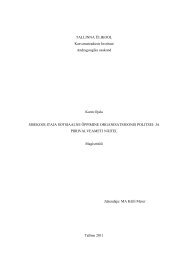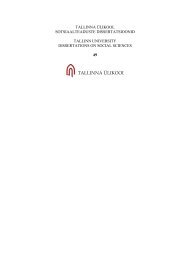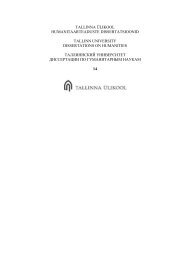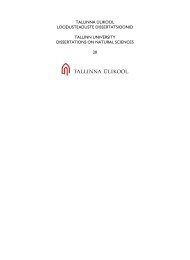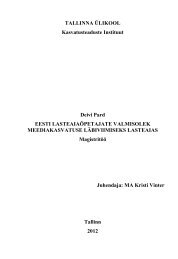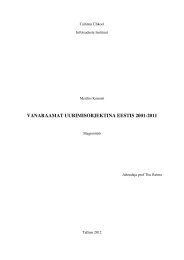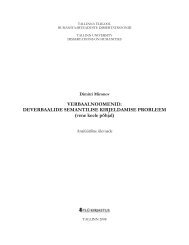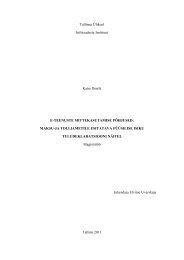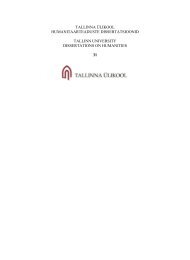Download (1157Kb) - E-Ait
Download (1157Kb) - E-Ait
Download (1157Kb) - E-Ait
Create successful ePaper yourself
Turn your PDF publications into a flip-book with our unique Google optimized e-Paper software.
knowledge sharing. The following section discusses these factors as suggested by other<br />
studies.<br />
2.4.2.1. Organisational Culture.<br />
With changing work practices, organisations are increasingly faced by the need to change<br />
their norms, values and motivation of employees. According to Peter Gottschalk, knowledge<br />
management projects revealed that organisational culture is widely held to be the major<br />
barrier to creating and leveraging of knowledge assets (Gottschalk, P. 2004, p.38). Long and<br />
Fahey identified four ways in which culture influences the behaviours central to knowledge<br />
creation, sharing and use. First, culture and particularly subcultures, shape assumptions about<br />
which knowledge are worth managing. Second, culture defines the relationships between<br />
individuals and organisational knowledge, determining who is expected to control specific<br />
knowledge, as well as who must share it and who can hoard it. Third, culture creates the<br />
context for social interaction that determines how knowledge will be used in particular<br />
situations. Fourth, culture shapes the processes by which new knowledge with its<br />
accompanying uncertainties is created, legitimated and distributed in organisations. These<br />
four perspectives according to them suggest specific actions managers can take to assess the<br />
different aspects of culture most likely to influence knowledge related behaviours (Long &<br />
Fahey, 2000).<br />
The perception of an organisation of the importance of knowledge is similarly important for<br />
the achievement of knowledge sharing. Organisations will always value what they believe to<br />
be important to their success. Fleisher and Blenkhorn in “Controversies in competitive<br />
intelligence” suggest that some organisational cultures value personal technical expertise and<br />
knowledge creation over knowledge sharing. They see this problem as often persisting in<br />
engineering and knowledge based organisations such as research and consulting firms<br />
(Fleisher & Blenkhorn, 2003, p.99).<br />
Robert H. Buckman urges that the culture that we create as leaders in our respective<br />
organisations has a major impact on our ability to share knowledge across time and space.<br />
Buckman stresses that people need to move from hoarding of knowledge to gain power to the<br />
sharing of knowledge to gain power (Buckman, 2004). However, many researches suggest<br />
that changing culture is indeed difficult though it happens. According to Holsapple in the<br />
current and the future environment, the major challenge relates to finding, creating, or<br />
20





